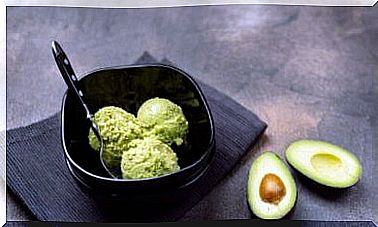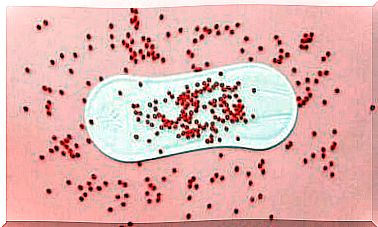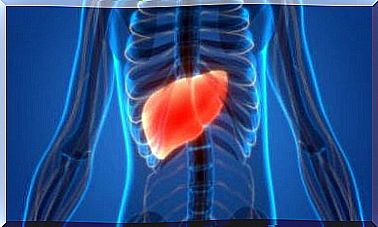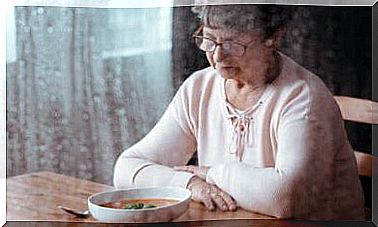Stomach Ulcers And Helicobacter Pylori
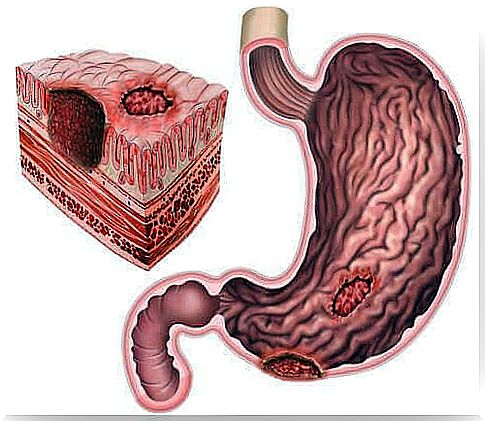
Today we tell you everything about stomach ulcers and Helicobacter Pylori. Peptic ulcers are a type of lesion that affects the gastroduodenal mucosa. Although the incidence of these ulcers is decreasing, it still affects a large part of the population.
More than 90% of peptic ulcer cases involve the presence of Heliobacter pylori. This is a type of bacteria that causes stomach infections. About two-thirds of the world’s population carries this bacterium, which can spread through contaminated food and water.
Stomach Ulcers and Helicobacter Pylori: Causes
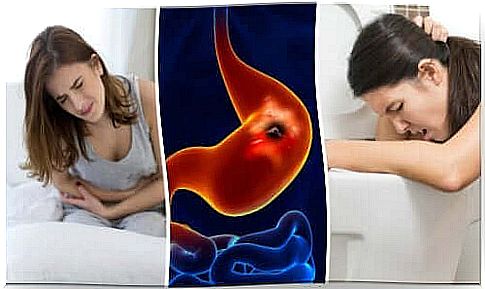
An imbalance between aggressive and defensive agents of the gastroduodenal mucosa causes most gastric ulcers. This imbalance is secondary to Helicobacter pylori infection or the consumption of non-steroidal anti-inflammatory drugs (NSAIDs).
In cases of peptic ulcers involving Helicobacter pylori, eradication of the bacteria will reduce the relapse . However, only 10 to 20% of people infected with Helicobacter pylori will ever develop an ulcer.
With chronic consumption of NSAIDs, 50% of these people will have superficial gastric lesions. The ulcers are also usually asymptomatic in these cases. The risk factors of stomach ulcers in people taking NSAIDs include:
- History of peptic ulcer.
- Age (over 60 years old).
- The use of anticoagulants or corticosteroids.
- High doses of NSAIDs.
- Infection by Helicobacter pylori.
There are no studies showing that smoking, stress, or diet are factors that cause stomach ulcers. However, smoking seems to have a negative impact on ulcer healing.
Stomach Ulcer Symptoms and Diagnosis
Most of those affected with ulcers show symptomatology of dyspepsia. Doctors will therefore suspect an ulcer when patients show dyspepsia symptoms. Symptoms include e piggastric pain on an empty stomach that subsides with food or antacids.
Lifestyle information, drug treatments, and a personal history of peptic ulcer or Helicobacter pylori infection are important for diagnosis.
In a number of people, stomach ulcers and gastroesophageal reflux disease can coexist, which can make diagnosis difficult. However, the most sensitive and specific test to confirm the existence of an ulcer is gastroscopy.
Treatment of stomach ulcers
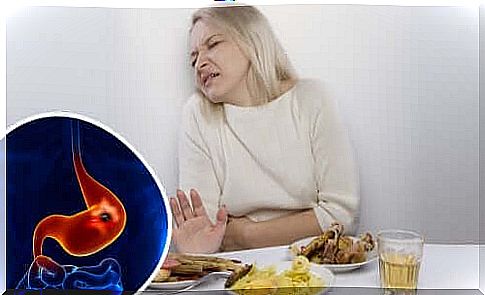
The goal of treatment is to relieve symptoms, heal the ulcer and prevent complications. It is also a good idea to follow some dietary measures, such as the following:
- Avoiding the use of NSAIDs.
- Do not eat or drink anything that causes the symptoms.
- Do not smoke, as tobacco delays the healing of the ulcer and increases the number of recurrences.
Antisecretory Treatment
Proton pump inhibitors (PPIs) are currently the drugs that achieve the highest mucosal healing rates. However, you should only use them if your doctor advises you to.
They should be taken before meals. A number of studies also show greater effectiveness when taken in the morning rather than late in the day.
Proton pump inhibitors need 3 to 5 days to reach maximum effect. However, there is a variability in the clinical response of hepatic metabolism to the drug.
The duration of treatment for an ulcer depends on the location of the ulcer. In duodenal ulcers it takes 4 weeks while in gastric ulcers it takes 6 to 8 weeks.
Eradication of Helicobacter pylori
Eradication of the bacteria results in healing of the ulcer. Long-term complications of ulcers are also reduced. The first choice for eradication treatment is to administer a PPI and antibiotics. Specifically, clarithromycin, amoxicillin and metronidazole for at least ten days.
In patients with a penicillin allergy, PPIs, clarithromycin and metronidazole are used as the first choice as treatment against the bacteria for at least 10 days.
Recommendations for the use of NSAIDs in stomach ulcers
If you or someone you know has risk factors for stomach ulcers, it is recommended that you consider the following recommendations before taking NSAIDs:
- Read the indications: If the effect you are looking for is analgesia or fever reduction, it is best to take paracetamol instead.
- Always use the minimum effective dose of NSAIDs and also the less toxic ones.
- Avoid taking NSAIDs, corticoids and anticoagulants at the same time.
